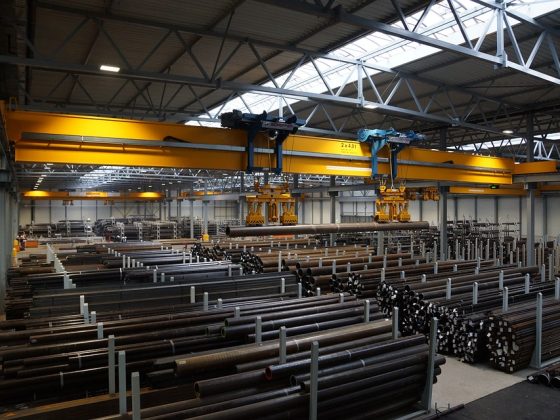Supply chain disruptions have become a hot topic in recent years, as businesses grapple with the challenges of navigating through unexpected events that can impact the smooth flow of goods and services across their networks. From natural disasters to political unrest to global pandemics, there are a multitude of factors that can disrupt supply chains and create problems for businesses of all sizes. However, with these challenges also come opportunities for businesses to rethink their strategies and create more resilient and agile supply chains.
Challenges of Supply Chain Disruptions
When a supply chain is disrupted, businesses can face a host of challenges that can impact their operations and bottom line. Some of the key challenges that businesses may encounter during a supply chain disruption include:
– Delayed or interrupted production: If a key supplier is unable to deliver components or raw materials due to a disruption, businesses may face delays in production that can impact their ability to fulfill orders and meet customer demand.
– Increased costs: Supply chain disruptions can lead to increased costs for businesses, as they may need to source materials from different suppliers or incur additional expenses to expedite deliveries and minimize the impact of the disruption.
– Damage to reputation: Delays in delivery or product shortages as a result of a supply chain disruption can damage a business's reputation and erode customer trust, leading to long-term consequences for the brand.
– Loss of revenue: Supply chain disruptions can result in lost sales opportunities, as businesses may be unable to fulfill orders or meet customer demand during the disruption, leading to a loss of revenue and market share.
Opportunities for Businesses
While supply chain disruptions pose significant challenges for businesses, they also present opportunities for companies to rethink their strategies and build more resilient and agile supply chains. Some of the key opportunities that businesses can leverage during a supply chain disruption include:
– Diversifying suppliers: One of the ways that businesses can build resilience in their supply chains is by diversifying their supplier base. By working with multiple suppliers for key components and materials, businesses can reduce their reliance on a single source and minimize the impact of disruptions.
– Investing in technology: Technology such as blockchain, artificial intelligence, and data analytics can help businesses to better track and monitor their supply chains, identify potential risks, and respond quickly to disruptions. By investing in technology, businesses can build more transparent and efficient supply chains that are better able to withstand disruptions.
– Collaborating with partners: Collaboration with suppliers, logistics providers, and other partners can help businesses to build stronger relationships and create more agile supply chains. By working together to share information, resources, and expertise, businesses can better prepare for and respond to disruptions.
– Reshoring manufacturing: In light of recent disruptions caused by factors such as the COVID-19 pandemic and geopolitical tensions, some businesses are exploring the idea of reshoring manufacturing to bring production closer to home. By reshoring manufacturing, businesses can reduce the risks associated with global supply chains and build more resilient and responsive operations.
FAQs
Q: What are some of the common causes of supply chain disruptions?
A: Some of the common causes of supply chain disruptions include natural disasters, such as earthquakes and hurricanes, political unrest, such as trade wars and sanctions, and global pandemics, such as the COVID-19 pandemic.
Q: How can businesses prepare for supply chain disruptions?
A: Businesses can prepare for supply chain disruptions by diversifying their supplier base, investing in technology, collaborating with partners, and reshoring manufacturing.
Q: What are some of the benefits of building a resilient supply chain?
A: Building a resilient supply chain can help businesses to minimize the impact of disruptions, reduce costs, improve efficiency, and enhance their reputation with customers.
Q: How can technology help businesses to better manage their supply chains?
A: Technology such as blockchain, artificial intelligence, and data analytics can help businesses to track and monitor their supply chains, identify risks, and respond quickly to disruptions.
In conclusion, supply chain disruptions are a reality that businesses must face in today's volatile and uncertain world. While these disruptions pose significant challenges, they also present opportunities for businesses to rethink their strategies, build more resilient supply chains, and create competitive advantages. By taking proactive steps to prepare for and respond to disruptions, businesses can better navigate through uncertain times and emerge stronger and more agile in the face of adversity.










